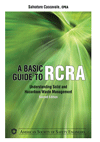Yes, heroin overdoses are a safety management concern
 Recent news reports indicate heroin use is on the rise—the U.S. Justice Department says there was a 320% increase in heroin seized along the southwest U.S. border from 2008 through 2013. (1) Public health and safety are at risk, and the risk does not stop at industrial plant gates or construction sites.
Recent news reports indicate heroin use is on the rise—the U.S. Justice Department says there was a 320% increase in heroin seized along the southwest U.S. border from 2008 through 2013. (1) Public health and safety are at risk, and the risk does not stop at industrial plant gates or construction sites.
A 2012 survey by the Substance Abuse and Mental Health Services Administration reported about 669,000 people over the age of 12 had used heroin at some point during the year, and of those, roughly 467,000 were considered to be heroin-dependent—more than double the number in 2002. (2) The figures are what some deem to be a likely impetus behind U.S. Attorney General Eric Holder’s decision to address the growing epidemic. In a video released in early March, Holder called heroin overdoses an “urgent public health crisis,” and stated:
“It’s clear that opiate addiction is an urgent—and growing—public health crisis. And that’s why Justice Department officials, including the (Drug Enforcement Administration), and other key federal, state, and local leaders, are fighting back aggressively.” (1)
Novus Executive Director Kent Runyon agrees with Holder’s position, and names heroin as a growing cause of drug overdoses, citing experts who say that the number of heroin users has more than doubled since 2007, and deaths from heroin overdoses are also on the rise in some parts of the country—about 3,000 people die in the U.S. of heroin overdoses each year. (3)
“Heroin provides a cheaper, faster high that eclipses that of any other narcotic, and its addictive qualities make sobriety an even harder reality to achieve for those struggling with addiction, even if they desire to live a drug-free life,” said Runyon. “But there is a solution that helps individuals overcome their addiction and return to being healthy, contributing members of society.”
Runyon maintains that rather than encouraging the current landscape of punishing drug-addicted individuals with incarceration, they should instead be treated as people who need help that can only be achieved through comprehensive detox and rehabilitation.
“In the past, detox was a one-size-fits-all approach, but the pain and degradation from being judged has led those addicted to drugs such as heroin to continue abusing those substances, leading to more and more depravation and even criminal activity,” said Runyon. “But detox using integrated medicine to mitigate the pain, and tailored detox and rehab programs to treat the individual, are the more humane and advanced medical procedures that work.”
In addition, Runyon suggests increased public education about the real dangers of heroin use and progressive treatments now available for people currently struggling with addiction.
Heroin has been proven to induce nausea, vomiting or itching; additionally, injecting too much of the drug at once can cause depressed breathing, a slow heart rate and unconsciousness. (4) In addition to its impact on the physical health of users, heroin also has an innate ability to adversely affect the lives of family and friends who attempt to help their loved ones struggling with addiction to no avail, per Runyon.
For more information on Novus Medical Detox’s addiction and detox programs, visit www.NovusDetox.com.
1. Prokupecz, Shimon. “Attorney General Eric Holder Vows to Fight Rising Heroin Deaths.” CNN. Cable News Network, 10 Mar. 2014. Web. 10 June 2014. cnn.com/2014/03/10/us/holder-heroin-overdose-initiative/.
2. Perez, Evan, Tory Dunnan, and Dana Ford. “Ready Access, Low Cost, Pill-like High: Heroin’s Rise and Fatal Draw.” CNN. Cable News Network, 4 Feb. 2014. Web. 12 June 2014. cnn.com/2014/02/02/us/heroin-use-rising/index.html.
3. Sheridan, Kerry. Yahoo! News. Yahoo!, 28 May 2014. Web. 12 June 2014. news.yahoo.com/heroin-drug-choice-white-us-suburbs-212100239.html.
4. “The Effects of Heroin Use.” N.p., n.d. Web. 12 June 2014. drugabuse.com/library/the-effects-of-heroin-use/.
Looking for a reprint of this article?
From high-res PDFs to custom plaques, order your copy today!







